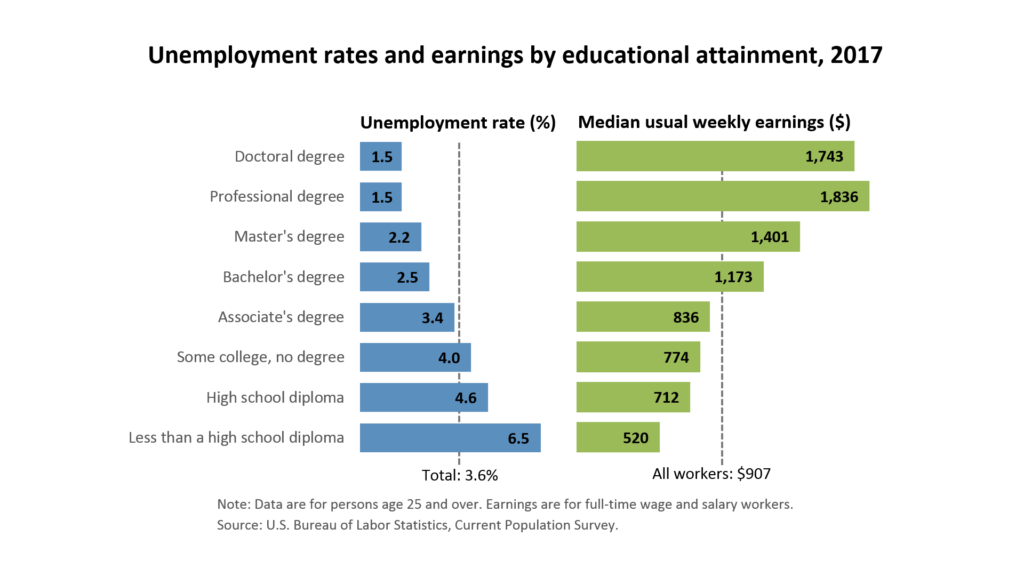If you’re interested in becoming a Certified Nursing Assistant (CNA), there are web-based training programs available for CNAs. The best of these programs require some on-site clinical training, but most classes are taken online, giving students maximum scheduling flexibility.
To learn more about online CNA programs, and other useful information about becoming a CNA, click on the links below.
- How Do Online CNA Programs Work?
- Do Online Programs Provide The Same Training As Traditional Programs?
- How Do I Know If A Program Is Accredited?
- How Does Certification Work With Online Programs?
- Is An Online CNA Program Right For Me?
How Do Online CNA Programs Work?
Online education can help you become a CNA, and the right program can successfully launch your new career. Online programs are designed to help students complete their education in a timely and convenient manner. Taking courses online can be a rewarding experience, and a great way to fit education into your busy lifestyle.
Not all online programs are the same, however. To choose the right one, it’s important to do your research and find out as much information as possible about your prospective college and academic program.
If you aren’t sure how e-learning works, here’s a breakdown of the common online components that constitute a comprehensive online learning environment:
- Discussion Boards: Most online courses use this asynchronous form of communication between students and professors. Assignments may be posted here, and comments or questions can be left for your instructor or a peer. Discussion boards are also a great way to connect with other students and be part of a community.
- Video Chats: Students and professors can log into a video chat room to talk face-to-face for a more immersive lecture experience. Using multiple senses in learning activities, in this case sight and hearing, have been proven to increase your ability to remember what you learn.
- Online Exams: Tests are often taken online rather than in a classroom. Some online exams are self-timed, and results are sent automatically through the website to your instructor.
The strategies used in online education are grouped into two broad categories, synchronous and asynchronous. Synchronous learning is similar to a traditional classroom setting, as it involves interacting in real-time with professors and fellow students. Video or text chats are considered synchronous learning. Asynchronous options include discussion boards or educational file-sharing services like CourseKit and Blackboard, which provide online environments for the exchange of classroom materials, assignment submissions, and discussions.
Do Online Programs Provide The Same Training As Traditional Programs?
Yes, but in different ways. Online accredited programs are designed to provide the same education and level of training as traditional ones. The difference lies in the delivery. Online programs deliver courses, lectures, and assignments through a learning platform or management system, while traditional programs typically hold classes on campus.
Some online programs are accelerated, with shorter completion times than traditional programs. Other online programs are a hybrid, allowing students flexibility in how they complete their education.
CNA training often includes a clinical component. Clinicals are an opportunity to apply your knowledge to a hands-on environment. They help you practice your skills, and seek out your specific area of interest. When researching CNA programs, make sure to inquire about how clinical training works and if it suits your schedule. Sometimes you can complete the required hours at your current place of employment. This is not always the case, but if you’re already working in a clinical setting, it may be possible for you to complete your clinical rotations at that site.
Once you become a CNA, there’s a chance you’ll want to advance your career. You can earn your associate’s degree, or even become a Registered Nurse (RN) by earning a Bachelor of Science in Nursing degree. If you’re not sure which degree path to take, we’ve created a helpful inventory of programs at all education levels:
Associates
- Associate In Medical Assisting Programs: Medical assisting programs provide students with the knowledge, skills, and techniques needed to perform professional duties in a medical office or clinic setting. Students are often trained in physiology, anatomy, medical terminology, and administrative functions.
- Associate In Nursing Programs: This program prepares students to take the licensure examination for Registered Professional Nurses (RN) and often takes two years to complete. A nursing associate’s degree is often referred to as an Associate of Applied Science (AAS) in Nursing, or an ADN (Associate Degree in Nursing).
- Associate In Physical/Occupational Therapist Assistant Programs: An associate’s degree in physical or occupational therapy assisting offers the training necessary to enter the field. An associate’s degree is also a great first step towards earning a bachelor’s degree.
- Associate In Radiologic Technology Programs: An associate’s degree in radiologic technology is the minimum requirement to work as a member of a diagnostic imaging team. Graduates will be prepared for careers as a radiologic technologist or an X-Ray technologist.
- Associate In Sonography Programs: An associate’s degree in sonography prepares graduates to work ultrasound technicians (also known as sonographers or ultrasound technologists). Ultrasound technicians are important members of the medical profession.
- Associate In Surgical Technology Programs: For those interested in working in the operating room, an associate’s degree in surgical technology will provide the proper training. These programs are specifically designed to teach the background medical knowledge and hands-on surgical skills needed to become a surgical tech.
Certificates
Patient Care Technician Diploma & Certificate Programs
- Nursing Assistant & Related Fields Certificate Programs: A certified nursing assistant (CNA) provides direct care to patients. CNAs take vital signs and help patients bathe, dress, and eat. They work under the supervision of a registered nurse (RN) or licensed practical nurse (LPN). CNAs and other nursing aides are a crucial part of the healthcare system.
How Do I Know If A Program Is Accredited?
If you’re not familiar with the term “accreditation,” you will be soon enough. Accreditation is the process of formally obtaining credibility from an authorized body. In order for a school to be accredited, it must meet certain standards. These standards address several key organizational functions such as faculty qualifications, student learning outcomes, student resources, curriculum, and student-to-staff ratios.
It’s important to note that accreditation is a voluntary process. Not all schools choose to participate. But consider the opt-out a red flag. If a school is not accredited, it might be a diploma mill or an institution with a shaky reputation. A diploma mill is a substandard institution that operates without supervision. These institutions can’t receive state or federal funding, and often “sell” useless credentials. The chances of getting a job with a degree from an unaccredited school are slim-to-none.
Take a look at your list of potential colleges, and check to see if they are regionally accredited by visiting the sites below:
- The Middle States Commission on Higher Education
- The New England Association of Schools and Colleges
- The Higher Learning Commission
- The Northwest Commission on Colleges and Universities
- The Southern Association of Colleges and Schools Commission on Colleges
- The Western Association of Schools and Colleges
Any CNA training program worth your time and money will be accredited. The Higher Learning Commission accredits many online schools with diverse programming, and there are also accreditors that specialize in vetting nursing and other medical training programs. You can also check with your state’s nursing board. Each one provides a list of state-approved CNA programs.
How Does Certification Work With Online Programs?
To become a CNA, you will have to take and pass the CNA exam for your state. CNA training programs are different from state-to-state, but all states require CNAs to pass a certification assessment.
Online and traditional CNA programs prepare students for their state certification exam, which measures your nursing skills, knowledge, and judgment. The test is multiple choice, comprising of fifty questions that test both your knowledge and intuition about what to do in different situations. Some hypothetical situations you may be tested on include:
- A nursing home resident’s eating habits have changed in response to a personal loss, such as the death of a spouse. You are afraid that the resident may not be getting enough nutrition. What do you do?
- A resident becomes angry and violent in a public situation, such as the dining hall or other shared space in the facility. What do you do?
- What are the first things a nurse’s aide should do at the beginning of any shift?
- If a nurse’s aide hears an alarm from another room while giving a bedbath to a resident, what is the proper response?
The test will also include a practical portion, in which you will be required to demonstrate three to five nurse assisting skills. Both online and on-site CNA training programs should prepare you for the CNA exam – and if a program does NOT provide test preparation courses and support, there’s a good chance the program is a scam.
Is An Online CNA Program Right For Me?
An education is one of the best ways to increase your job prospects and salary. And whether you choose to pursue your education online or on campus, know that your degree will serve you well, both financially and professionally. The U.S. Census Bureau measured the increase in salary at different degree levels, and the stark results they came up with are displayed in the chart below. (Source: BLS.gov: Occupational Employment And Wages: Employment Projections, data for May 2017)

Before you choose a CNA training program, it’s important to consider which format is right for you. Online learning is not for everyone. If you’re currently working, or have other responsibilities that make it hard to attend courses on-site, online learning might be good choice. Online programs give you near total control of your schedule.
Financial aid is available if you qualify, and there are a few different options worth looking into. These funding opportunities are awarded for those who meet specific criteria:
- Federal Loans: The U.S. Government offers various student loans with fair interest rates and flexible repayment schedules, which are easily available to students at both online and on-campus universities.
- Grants: The government offers Pell grants to students who can demonstrate financial need, and at upwards of $5,000 per school year, these grants can significantly relieve the financial burden of paying for college.
- Scholarships: Your school’s financial aid office can probably alert you of scholarships that are offered in your field of study, and searching online can also yield results.
If you’re confident in your decision to become a CNA, the accredited programs listed below will help you find a school that meets your needs.

